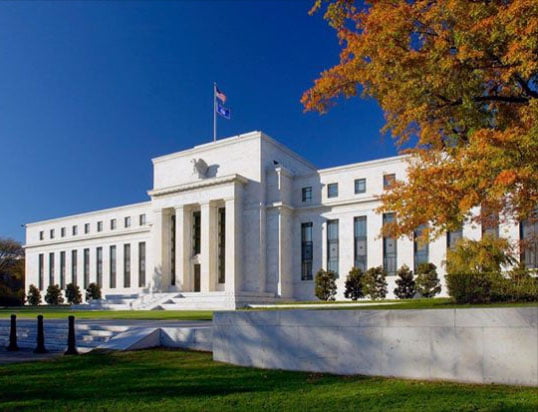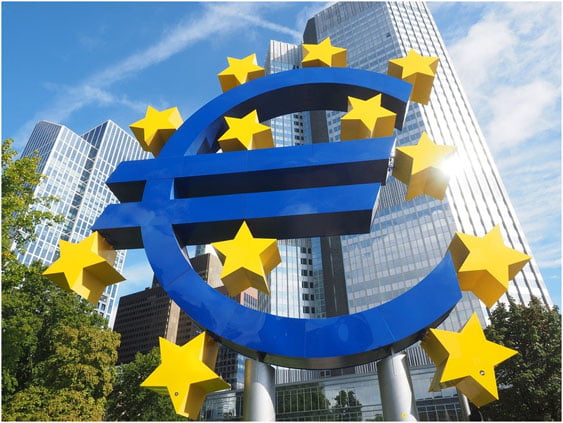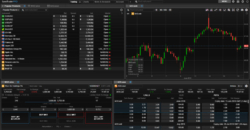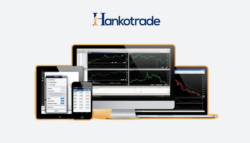When important economic events hit the news, whether it is a pledge to cut interest rates or a dramatic weakening of a currency, it can often seem like the headlines have come out of nowhere. What doesn’t always make the headlines are the economic meetings that almost always precede these monetary developments. Central banks and economic groups have regularly scheduled meetings to determine policies, which often have consequences that can affect the strength of a national economy, the value of a currency, or the rate of employment.
Many of these meetings may pass without too much fanfare, although traders and businesses in the relevant regions will be closely following developments in case of any minor shifts in policy. The smallest changes, or even no change at all, can cause swings in the value of a currency or a commodity, so investors will have these key economic meetings marked in their calendar each year.
Here is a look at four of the most globally significant economic meetings that take place each year. Each committee has regular meetings planned throughout the year, although exceptional circumstances can sometimes cause a committee to meet sooner than anticipated.
Federal Open Market Committee (FOMC)

The FOMC is the policymaking arm of the US Federal Reserve (the Fed), meeting around once every six weeks to shape the country’s economic development. FOMC meetings are among the most high-impact dates on the economic calendar, given that the US dollar is the backbone of the world’s largest economy. The strength or weakness of the dollar naturally affects global businesses and other nation’s economies, as the USD is the most commonly-used currency in forex pairs.
The outcome of FOMC meetings can, therefore, influence a trader’s position. For example, a dovish strategy often comes with commitments to reduce interest rates, thereby weakening the value of the dollar and encouraging traders to adopt a short position. Initial forecasts suggested that this would be the case in early 2020, with Goldman Sachs analysts’ anticipating three cuts in total between March and June. The Fed decided not to wait for the FOMC meeting, cutting borrowing costs by 50 basis points two weeks prior. This makes March’s FOMC meeting even more crucial for traders and businesses.
Bank of England (BoE)
The BoE has a Monetary Policy Committee that determines interest rates in the United Kingdom, with the committee’s primary purpose to consistently hit the 2% inflation target provided by the government. The BoE’s MPC convenes eight times a year to stay on top of economic developments in the country, with the outcome of these meetings either increasing or reducing confidence in the British pound (GBP).
The GBP is traditionally one of the most dependable currencies in the world, but it has been affected by the uncertainty surrounding Brexit in recent years. With the UK engaging in pivotal trade negotiations with the EU throughout 2020, the MPC meetings will take on new significance. Just how the UK economy will adapt to the product of those negotiations, whether that is a trade deal or no deal, will become clear through the decisions made by the MPC. Traders and businesses with a vested interest in the UK will be closely following the MPC meetings throughout 2020, to gain an idea of the country’s long-term economic prospects.
European Central Bank (ECB)

The ECB dictates the overarching economic policies for the nineteen members of the Eurozone, so ECB meetings have great significance for several national banks. The Governing Council of the ECB hold meetings every six weeks to determine monetary policies for the coming months, working towards the main objective of stimulating economic growth and employment in the Eurozone.
The Governing Council is also responsible for tailoring Eurozone policies in response to extreme external influences. For example, all ECB meetings in the first half of 2020, and possibly beyond, will deal with the economic fallout of the coronavirus outbreak, with key monetary policy decisions possibly including liquidity provision to the companies most keenly affected by the changes to the global trading landscape.
Organization of Petroleum Exporting Countries (OPEC)
As its name suggests, OPEC is comprised of those countries responsible for exporting oil around the world. Formed by five founding nations in 1960 (Iran, Iraq, Kuwait, Saudi Arabia, Venezuela), OPEC now consists of 14 countries. Recent estimates show that these nations account for around 44% of the world’s oil production and own the vast majority of all known oil reserves. Given the significance of oil as a commodity, OPEC policies can have dramatic consequences for economies across the world.
When the supply and demand for oil shifts, the OPEC alter prices accordingly. Diminished demand and disappointing levels of economic growth have already prompted some OPEC nations to decrease their output, with Saudi Arabia already committed to cutting down by 600,000 barrels per day with scope for further reductions. Cuts in production drive oil prices up, so national banks will be closely monitoring the two OPEC meetings in 2020, with the potential for additional meetings if needed. Traders will also be interested, as rising oil prices could cause currencies to weaken.
The importance of economic meetings everywhere
While the groups behind these four meetings may have a particularly wide sphere of influence, by virtue of the popularity of their currencies or their oil, national economic meetings are of course hugely significant for domestic economies. For example, policy interest rate announcements by the Bank of Canada will have crucial ramifications for residents in the country.
There are eight interest rate announcements in total scheduled for the Bank of Canada in 2020, which demonstrates how these committees frequently convene to ensure an economy is on track. Whether you’re monitoring your national bank or looking to anticipate global trends, economic meetings are hugely important events to follow.





